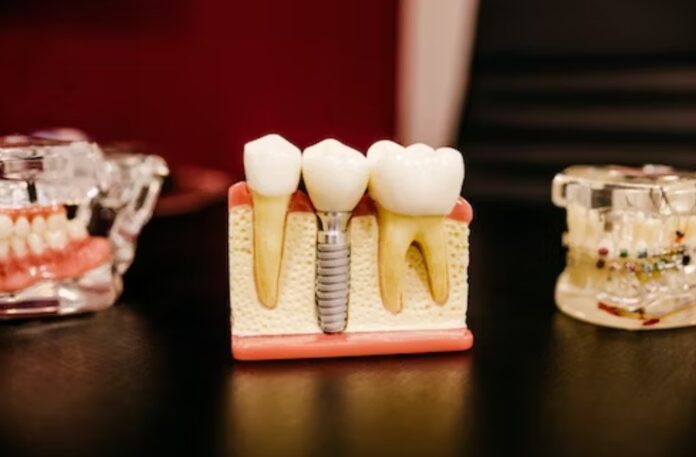The experience of losing a tooth can be unsettling, affecting both oral health and self-confidence. While immediate solutions like dental implants, bridges, and dentures offer timely relief, exploring long-term strategies beyond mere tooth replacement is essential. This article will explore various approaches aimed at sustaining optimal oral health and preventing future tooth loss.
Dental Implants
Widely acknowledged for their effectiveness, dental implants provide a stable and permanent solution that closely resembles a natural tooth root. However, ensuring the prolonged success of dental implants requires diligent oral care. Regular dental check-ups and professional cleanings are imperative to prevent potential complications such as gum disease, which could compromise the stability of the implant. Go to dartmoordental.co.uk to book in your implant and improve your smile.
Bridges
Dental bridges offer another viable option for restoring a lost tooth. Maintaining excellent oral hygiene practices is crucial to ensure their long-term effectiveness. Consistent flossing and regular dental check-ups are essential to prevent decay and gum disease, which could threaten the health of the neighboring teeth supporting the bridge.
Dentures
For individuals facing the loss of multiple teeth, dentures provide a removable option to restore both function and aesthetics. To ensure the enduring success of dentures, meticulous care and maintenance are essential. Regular cleaning, soaking, and periodic adjustments by a dentist are necessary to prevent issues such as irritation, infection, or changes in fit that may occur over time.
Preventing Further Tooth Loss
Beyond the immediate replacement of a lost tooth, addressing the root causes of tooth loss is crucial for sustained oral health. Adopting a proactive approach to dental care involves:
a. Sustaining Optimal Oral Hygiene: Regularly brushing, flossing, and incorporating an antiseptic mouthwash into your routine can effectively prevent gum disease and decay, minimizing the likelihood of additional tooth loss.
b. Consistent Dental Check-ups: Regular dental examinations facilitate the early identification of potential issues, enabling prompt intervention and averting the progression of dental problems.
c. Embracing Healthy Lifestyle Choices: Steering clear of tobacco, moderating alcohol consumption, and maintaining a balanced diet all contribute to overall oral well-being. Smoking and excessive alcohol intake are acknowledged as risk factors for gum disease and subsequent tooth loss.
d. Shielding Teeth from Trauma: Utilizing a mouthguard during activities with a potential risk of dental injury, such as sports or nocturnal teeth grinding, serves as a preventive measure against accidents that could result in further tooth loss.
Bone Health
The health of the jawbone significantly influences the success of dental implants. To maintain optimal bone density, it is imperative to:
a. Incorporate a Calcium-Rich Diet: A diet rich in dairy products, leafy greens, and fortified foods contributes to maintaining strong bones.
b. Consider Vitamin D Supplementation: Adequate levels of vitamin D are crucial for calcium absorption, promoting bone health. Exposure to sunlight and dietary supplements can help ensure sufficient vitamin D intake.
c. Avoid Smoking and Excessive Alcohol Consumption: Both smoking and excessive alcohol intake can adversely affect bone health, increasing the risk of implant failure.
Conclusion
While immediate solutions like dental implants, bridges, and dentures are crucial for restoring a lost tooth, adopting a holistic and long-term approach to oral care is paramount. Preventing further tooth loss, maintaining good oral hygiene, and addressing underlying causes contribute to sustained oral health and overall well-being. By combining immediate solutions with proactive lifestyle choices, individuals can enjoy the benefits of a confident smile and optimal oral function for years to come.










